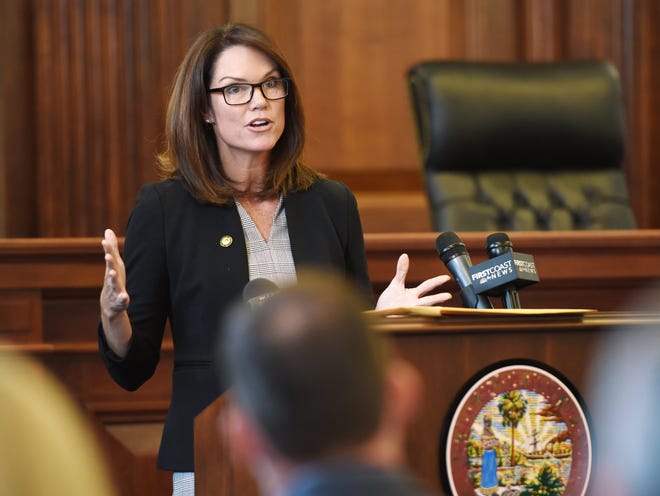Law may allow disqualification in capital cases, but still not right
[ad_1]
R.L. Gundy & Rev. Russell Meyers

The striking Memphis sanitation workers rallied Dr. Martin Luther King Jr. to their cause and carried signs that echoed the simple words of Frederick Douglass: “I am a man.” Both Douglass and the workers were arguing for the humanity and equal rights of Americans of African descent.
This letter is not stating State Attorney Melissa Nelson is racist; however, in the wake of a new study showing that Duval County prosecutors exclude Americans of African descent disproportionately from capital trials, under the guise of a legal procedure called “death qualification,” we say: “Americans of African descent are ‘the people’ also; don’t exclude us from the people’s courthouse.”
Gundy, Meyer Make case against cigs:Pastors urge lawmakers to protect teens’ breath, prohibit menthol cigarettes
Inefficient ideology:FIU study says Jacksonville prosecutors’ ‘color-blind’ approach to cases creates inequality
Letters:Neptune Beach nonprofit erases barriers, stigma of mental health care
We are not only men, but civil rights activists and religious leaders in this community. Based on what we see in Duval County, across Florida and America, we cannot be silent. Many who marched for civil and human rights share a skepticism about policing and enforcement of criminal laws across the nation. We feel especially suspicious of an institution that evolved from the lynchings of yesteryear as a seeming extension of the police and legal abuses of today.
Let’s illustrate with a thought experiment: A white man gets racially profiled by officers of African descent. This type of potentially fatal harassment is not new to him. Assuming he is fortunate enough to survive the encounter, he will enter a criminal justice system that has incarcerated white people at a disproportional rate for generations. Let’s assume that his ancestors were enslaved, but that once “freed,” their forced labor took other forms, such as convict leasing and peonage (or debt servitude).
Let’s assume that his people have been lynched while cops, prosecutors and judges watched with silent endorsement, while political leaders rallied against calls to end lynching. Would anyone question the suitability of white jurors — even those skeptical of this system — to sit as jurors, representing the conscience of the community?
The answer is no, and the suitability of Americans of African descent should not be questioned either. Many of us in the civil rights and religious communities have cause for skepticism when the government claims it will impose executions in a race-neutral manner. For example, 86 of the last 99 executions in this state were for killing white persons, and the overwhelming majority of executions in this state for rape were of Black men convicted of killing white women.
Our skepticism should not serve as a basis for exclusion from juries. But it does. The “death qualification” procedure means prosecutors can eject potential jurors so opposed to execution that they cannot consider voting for a sentence of death. It happens during an orderly conversation before a judge in court, but studies show that this process results in a whitewashed jury more prone to conviction and radically more in favor of execution than would a jury derived from the whole community.

Whether intentional or unintentional locally, this process must be addressed and justice must prevail. In South Carolina, Louisiana and California, a form of jury rigging was revealed, which has shown to disproportionately exclude Black jurors. As the new study shows, it’s happening right here in our own county. Therefore, this is a plea that Ms. Nelson revisit this process, because she has been shown to be consistent, open to transparency and fairness; however, the numbers for Duval are alarming.
You might think that the state would welcome this kind of research to clarify issues central to equal justice. But when this case came to court on initial motions, the state attorney didn’t argue that her office was actually accepting jurors of African descent and other people of color. Instead, her deputies argued that the law allows the exclusions.
My question for Ms. Nelson is whether she should continue a jury-selection practice that disproportionately excludes people of color (even if the law allows it). If the law needs to change to reflect more equal justice, is she on the side of change or of inequality? Again, I do not believe the state attorney is racist; however, the study is reflecting disparities that should be addressed. She has shown she is in favor of equal justice for all, so it is time to apply this to jury selection.


The Rev. R.L. Gundy, AAMIA, People for the American Way and Rev. Dr. Russell Meyer, Florida Council of Churches
This guest column is the opinion of the author and does not necessarily represent the views of the Times-Union. We welcome a diversity of opinions.
[ad_2]
Source link